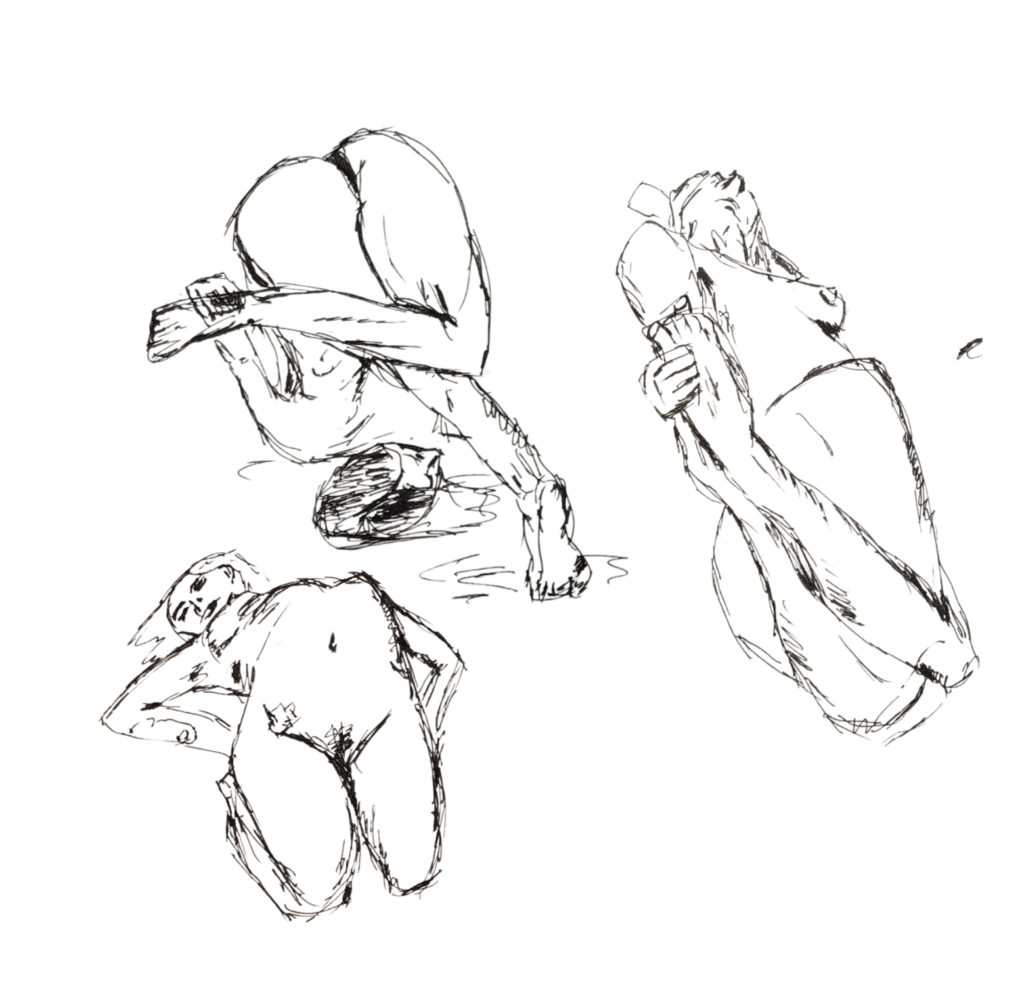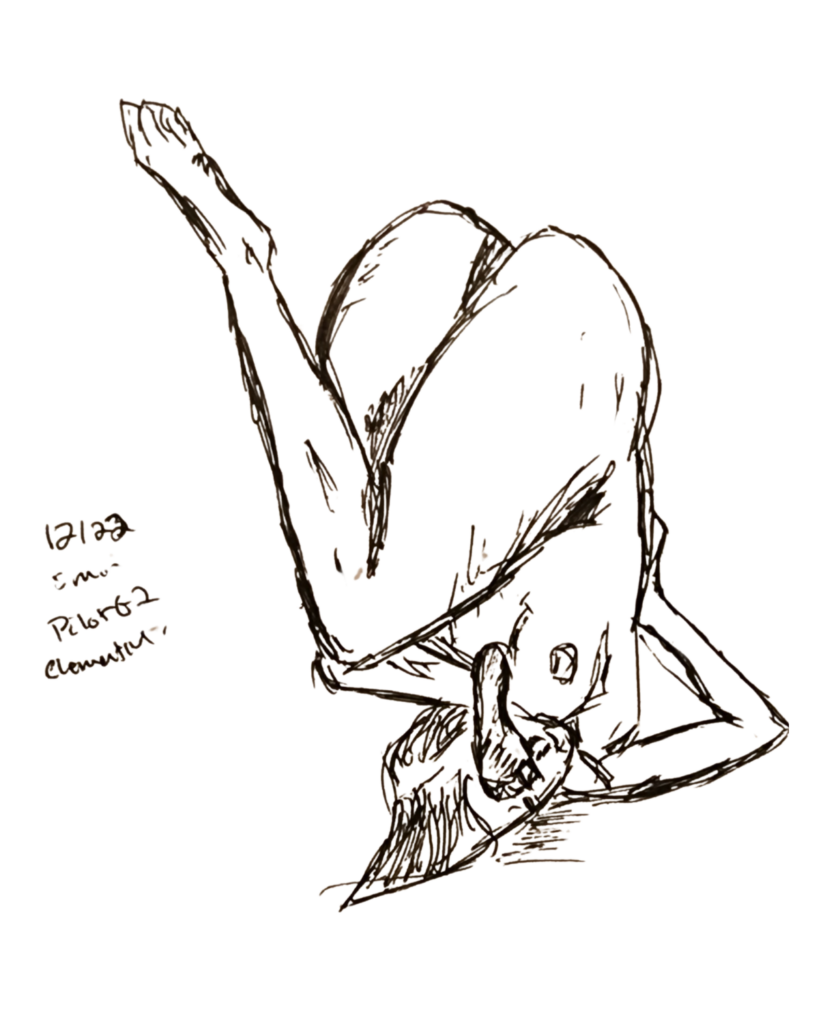This all began when my therapist issued a very surreal homework assignment. “Go do something you’ve wanted to do, ideally with other people, ideally without drinking.” This was after two years of reigning in the runaway-train of thoughts through talking and with the tinkering of my internal chemistry. Now, with a daily 425mg mixture of various stimulants and uptake inhibitors, I was free.
I could do anything. The rub? I had to do something. And this, dear reader, is an impossible feeling. Even today, as I write this, there is very little in the way of the idea of “doing whatever the hell I want.” Yet, I feel an overwhelming weight of guilt that grounds me to the chair.

This comes down to, in part, the paradox of choice – when you can do anything, you end up doing not much. The day off from work spent rewatching, with little irony, episodes of The Office. Or when your other half says, “I don’t know, what do YOU want for dinner tonight?” the conversation goes nowhere. But if you ask “Tacos or Pasta?” you both inevitably end up eating Thai food, again, with the promise that someone will finally go to the grocery store tomorrow.
A few days later, in my appointment with Dr. Tim (my neurologist, not my therapist, because what is healthcare if not an unending web of specialists you are responsible for keeping together and, more importantly, in network?) signs off on my next round of prescriptions. Admittedly, I feel good for the first time in over a decade. “Is this what normal people feel all the time?”
He says, “they feel better, actually. You’re probably at 90%. Later, when today’s dose wears off, it’ll feel closer to 70.” The idea pisses me off a little, like there is a club I hadn’t been invited to or no one told me that there was pizza in the breakroom until the boxes were left open, cold, and picked over.
“Now, go forth and chase that dopamine!” Dr. Tim tells me. I’m not surprised he is in concert with my therapist – they work down the hall from one another.
How do I explain this?
It’s not that I don’t know where the dopamine resides. It’s the guilt that comes with it. In behavoiral psychology, they use something called a Skinner Box to facilitate experiments on animals. (named for psychologist B.F. Skinner). At the most fundamental, these experiments brought about the theories of classical conditioning. If the mouse presses one button, he gets food. Press the other button, he gets a little shock. Reward good, pain bad – this shapes all human behavoir.
What if there is only one switch? Every time the mouse presses it, it delivers a treat or a shock and the mouse never knows which one is coming next. How long until the mouse would rather starve than face another shock? How frequently does it need to be rewarded for it to face the potential consequences of the shock?
This is the idea of positive and negative reinforcement in very, very simple and broad terms. The environment I live in, I grew up in, is far more complicated than a mouse in a box. In some cases, a person’s behavior can be completely changed with just a handful of events, if not a single one.
I grew up Catholic. I was an involved member of the Boy Scouts. I am the oldest of three.
“Anecdotally, that’s rough,” the therapist tells me. “I mean, it could mean nothing, but that sounds like a minefield for shame.”
I was supposed to be the example. I was supposed to be the good influence. It was only a matter of time until there was a division between “I should do this” and “I want to do that.” In my youth, there is the universal idea that my enjoyment always comes at the cost of someone else’s despair. How can you rest when your neighbor is working? They have to work twice as hard to compensate for your laziness! Teamwork makes the dreamwork! To be safe, only rest when someone else decides its time – and even then, you will never fully enjoy that time off.
Because time is money. Because sloth is a sin. Because you’ll have time for all of that later. To do something on your own because you would very much like to do that thing is wholly selfish.
And you, David, should be ashamed of yourself.
Like most kids, I liked to draw. Spaceships, mostly. The summer between 8th and 9th grades I remember my spiral notebook of drawings suffered a horrendous defacement. Every single page, blank or drawn-in, was viciously scribbled over with the words “STOP DRAWING!” in the dense, bleeding ink of a Marks-A-Lot marker. I can still smell the ink. I have kept hundreds of notebooks in my time, but this one felt like an assault.
I remember my mom standing at the door to my room, saying calmly, “I’ll need your help this summer.” As though she were asking politely, as though she hadn’t destroyed something I genuinely enjoyed doing. As the oldest, I had an obligation – to mow the lawn, to help clean the house, to babysit my younger siblings. This was nothing beyond the usual, it is what they expected of me every season.
That was the summer I learned that art had no place in that house.
Is it the thrill of the chase, or the imbibing of the reward? When it comes to dopamine, the shocks were persistent. How dare I serve myself before others? How dare I keep time for myself! Reject invitations? Or, worse yet, tell someone I don’t want them to come along? God granted you this life, you do not get to decide how your time is spent.
Even today, the idea of “you can do anything you want!” is quickly replaced with a look around to see what needs to be done. The unmown lawn, the dirty dishes, the laundry. There is a mountain of client work to finish and send off because you are obligated to bring money into the house. If it isn’t increasing value, then you shouldn’t be doing it.
In these later years of “getting my brain back,” the everyday experience feels disorienting, nauseating. Like when your eyeglass prescription is bumped up a few levels after years without proper eye insurance – everything snaps into a painful, crystal clear focus. For days the headache persists as the muscles of your eye get used to the new resolution fo your world. For a few days you look at your old eyeglasses sitting on your desk, and how you would love to go back to them for just a moment because at least it wouldn’t hurt.
Instead of eyeglasses, the focus is on the story that we all subconsciously tell ourselves. All this time, my story has been “this is selfish” anytime I do something I enjoy, always expecting someone to ask for an explanation of what I’m doing, reprimanding for spending my time so frivolously!
“This is selfish,” I say. “And that’s the point.”
I passed my homework. With a bit of searching, I found a nearby art gallery that was hosting a life drawing session. Paper, pencil, ten bucks and two hours. I didn’t speak a word to anyone, drew horribly, and got back to my house with the hunger to do more.



